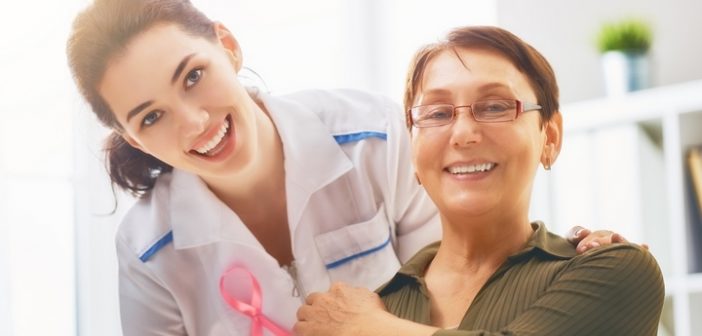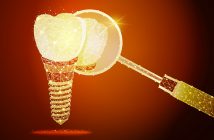“I’m sorry to say you have cancer…”
This is perhaps the one statement most people dread hearing from their doctor. Besides the initial bad news, cancer treatment is not easy to endure. This, however, need not be the case. With integrative cancer care, you get to go through the treatment with minimum disruption to your life. Integrating naturopathy with conventional therapies supports your treatment and minimizes the impact of symptoms and their recurrence.
When you hear about alternative cancer treatments, what goes through your mind? Chances are you have more questions than answers. You are not alone. Below are five frequently asked questions about alternative cancer treatments.
1. What Are Alternative Cancer Treatments?
 The statement, “alternative cancer treatments”, is a misnomer. Therapies and treatments offered by naturopathic medical doctors (NMDs) are not alternatives to conventional cancer treatments. They support conventional cancer treatments by minimizing the impact of symptoms and side effects. The ‘alternative’ treatments are tailored for every patient based on the treatment course they are undergoing.
The statement, “alternative cancer treatments”, is a misnomer. Therapies and treatments offered by naturopathic medical doctors (NMDs) are not alternatives to conventional cancer treatments. They support conventional cancer treatments by minimizing the impact of symptoms and side effects. The ‘alternative’ treatments are tailored for every patient based on the treatment course they are undergoing.
2. Are Alternative Cancer Treatments (ACTs) Effective?
 The way to look at ACTs is their ability to support conventional cancer treatments with a view to reducing the impacts of side effects and symptoms, besides alleviating pain. Fighting cancer is usually a long battle. It is a battle for your life, which means you need all the support you can marshal. ACTs arm your body with the necessary defence mechanism to help it withstand the ravaging effects of cancer, especially the brutal conventional cancer treatment your body is subjected to.
The way to look at ACTs is their ability to support conventional cancer treatments with a view to reducing the impacts of side effects and symptoms, besides alleviating pain. Fighting cancer is usually a long battle. It is a battle for your life, which means you need all the support you can marshal. ACTs arm your body with the necessary defence mechanism to help it withstand the ravaging effects of cancer, especially the brutal conventional cancer treatment your body is subjected to.
Among the benefits of ACTs is their ability to relieve pain and aches, reduce nausea and lower sensitivities. With proper guidance from your naturopathic medical doctor, ACTs can enhance the effectiveness of your conventional treatment and quicken your recovery.
3. Does Naturopathic Cancer Treatment Work for Breast Cancer?
 Yes. Alternative cancer treatments can help you fight breast cancer. It does this by reducing stress, promoting healing, and generally improving your quality of life. At the root of these alternative treatments is their ability to help you undergo conventional treatment with a minimum amount of pain and discomfort.
Yes. Alternative cancer treatments can help you fight breast cancer. It does this by reducing stress, promoting healing, and generally improving your quality of life. At the root of these alternative treatments is their ability to help you undergo conventional treatment with a minimum amount of pain and discomfort.
4. If I have Prostate Cancer, Can Alternative Cancer Treatments Work for Me?
 Yes, of course! Again, ACTs support conventional cancer treatments with a view to reducing the impacts of symptoms and side effects on your body. They are not a replacement for conventional treatment, but they help in keeping your body’s defence mechanism strong enough to fight off the ravages of cancer. This is because conventional cancer medicines can wreak havoc on your body.
Yes, of course! Again, ACTs support conventional cancer treatments with a view to reducing the impacts of symptoms and side effects on your body. They are not a replacement for conventional treatment, but they help in keeping your body’s defence mechanism strong enough to fight off the ravages of cancer. This is because conventional cancer medicines can wreak havoc on your body.
Effects of cancer treatments could make you lose weight dramatically. They can also lower your sex drive, raise stress levels, and affect your sleep. This is where ACTs come in to shore up your body’s defence mechanism and make life a bit more bearable.
5. Do Alternative Cancer Treatments Prevent Hair Loss?
 No! Alternative cancer treatments do not guarantee that cancer-related symptoms and side effects will not occur. They, however, minimize their impacts and support conventional cancer treatment. The benefits of chemotherapy and radiation in treating cancer are well known, but they come at a cost. One of these is hair loss. Recommended alternative cancer therapies may lessen symptoms and reduce their chances of recurrence, and fast track your recovery. However, ATCs do not guarantee the side effects associated with conventional cancer treatment will go away.
No! Alternative cancer treatments do not guarantee that cancer-related symptoms and side effects will not occur. They, however, minimize their impacts and support conventional cancer treatment. The benefits of chemotherapy and radiation in treating cancer are well known, but they come at a cost. One of these is hair loss. Recommended alternative cancer therapies may lessen symptoms and reduce their chances of recurrence, and fast track your recovery. However, ATCs do not guarantee the side effects associated with conventional cancer treatment will go away.
Alternative cancer treatments are highly effective in mitigating the symptoms and side effects of cancer and conventional treatment on your body. They act by shoring up your body’s defence mechanism to help it absorb and minimize the ravages of conventional cancer treatment. While they are not a ‘replacement’ treatment, they nonetheless improve your quality of life in spite of the pain and discomfort.




